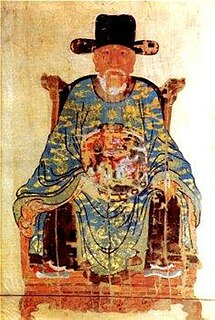 W
WBuddhist philosophy refers to the philosophical investigations and systems of inquiry that developed among various Buddhist schools in India following the parinirvana of the Buddha and later spread throughout Asia. The Buddhist path combines both philosophical reasoning and meditation. The Buddhist traditions present a multitude of Buddhist paths to liberation, and Buddhist thinkers in India and subsequently in East Asia have covered topics as varied as phenomenology, ethics, ontology, epistemology, logic and philosophy of time in their analysis of these paths.
 W
WChinese philosophy originates in the Spring and Autumn period (春秋) and Warring States period (戰國時期), during a period known as the "Hundred Schools of Thought", which was characterized by significant intellectual and cultural developments. Although much of Chinese philosophy begun in the Warring States period, elements of Chinese philosophy have existed for several thousand years. Some can be found in the I Ching, an ancient compendium of divination, which dates back to at least 672 BCE. It was during the Warring States era that what Sima Tan termed the major philosophical schools of China—Confucianism, Legalism, and Taoism—arose, along with philosophies that later fell into obscurity, like Agriculturalism, Mohism, Chinese Naturalism, and the Logicians. Even in modern society, Confucianism is still the creed of etiquette for Chinese society.
 W
WIndian philosophy refers to philosophical traditions which developed in the Indian subcontinent. Modern scholars generally divide the field between "Hindu Philosophy" and non-Hindu traditions such as Buddhist Philosophy and Jain Philosophy. This division is generally derived from traditional Indian classifications.
 W
WIranian philosophy or Persian philosophy can be traced back as far as to Old Iranian philosophical traditions and thoughts which originated in ancient Indo-Iranian roots and were considerably influenced by Zarathustra's teachings. According to the Oxford Dictionary of Philosophy, the chronology of the subject and science of philosophy starts with the Indo-Iranians, dating this event to 1500 BC. The Oxford dictionary also states, "Zarathustra's philosophy entered to influence Western tradition through Judaism, and therefore on Middle Platonism."
 W
WJapanese philosophy has historically been a fusion of both indigenous Shinto and continental religions, such as Buddhism, Taoism and Confucianism. Formerly heavily influenced by both Chinese philosophy and Indian philosophy, as with Mitogaku and Zen, much modern Japanese philosophy is now also influenced by Western philosophy.
 W
WJewish philosophy includes all philosophy carried out by Jews, or in relation to the religion of Judaism. Until modern Haskalah and Jewish emancipation, Jewish philosophy was preoccupied with attempts to reconcile coherent new ideas into the tradition of Rabbinic Judaism, thus organizing emergent ideas that are not necessarily Jewish into a uniquely Jewish scholastic framework and world-view. With their acceptance into modern society, Jews with secular educations embraced or developed entirely new philosophies to meet the demands of the world in which they now found themselves.
 W
WKorean philosophy focused on a totality of world view. Some aspects of Shamanism, Buddhism, and Neo-Confucianism were integrated into Korean philosophy. Traditional Korean thought has been influenced by a number of religious and philosophical thought-systems over the years. As the main influences on life in Korea, often Korean Shamanism, Korean Taoism, Korean Buddhism, Korean Confucianism and Silhak movements have shaped Korean life and thought. From 20th century, various Western philosophical thoughts have strongly influenced on Korean academia, politics, and daily life.
 W
WVietnamese philosophy includes both traditional Confucian philosophy, Vietnamese local religious traditions, and later philosophy introducing French, Marxist, Catholic and other influences.
 W
WWestern philosophy refers to the philosophical thought and work of the Western world. Historically, the term refers to the philosophical thinking of Western culture, beginning with the ancient Greek philosophy of the pre-Socratics. The word philosophy itself originated from the Ancient Greek philosophía (φιλοσοφία), literally, "the love of wisdom".